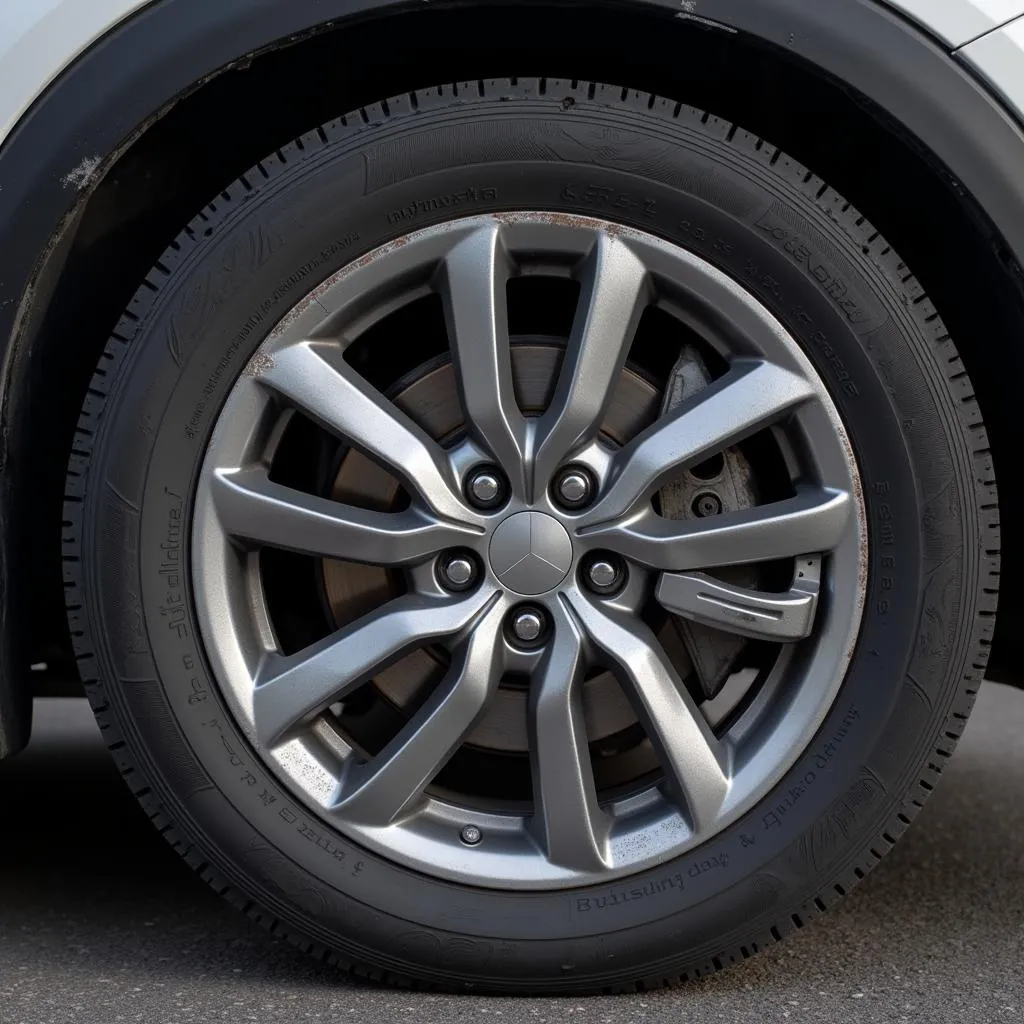Your car purring like a kitten at low speeds but transforming into a trembling mess past 60 mph? That’s not just an annoyance—it’s a sign something’s off in your car’s mechanics. Ignoring this shaking can lead to more serious problems (and costly repairs) down the road. This article will guide you through the common culprits behind those unsettling vibrations and equip you with the knowledge to get your ride running smoothly again.
Why Does My Car Shake at High Speeds?
Several factors can cause your car to shake over 60 mph. Let’s break down the most common ones:
1. Tire Troubles: Your First Line of Inquiry
Your tires are your car’s only point of contact with the road, so it’s no surprise they’re often the main suspects when vibrations strike.
- Tire imbalance: Imagine a washing machine on spin cycle without counterweights—that’s what happens when your tires aren’t balanced. Uneven weight distribution can cause vibrations that worsen with speed.
- Worn tires: As tires wear down, their tread depth decreases, reducing their grip on the road and increasing the likelihood of vibrations.
- Damaged tires: Bulges, bubbles, or flat spots on your tires can also throw off balance and trigger shaking.
Expert Insight: “Always start with the simplest explanation first,” advises Mike Thompson, Senior Mechanic at Thompson Automotive. “In my experience, nine out of ten times, car shakes over 60 mph boil down to tire issues.”
2. Wheel Alignment and Balance: Keeping Things Straight
Even if your tires are in top shape, misaligned or unbalanced wheels can still cause your car to shake.
- Wheel alignment: Proper wheel alignment ensures your wheels are pointing in the right direction. When they’re off, even slightly, it can create uneven tire wear and vibrations.
- Wheel balance: Similar to tire balance, wheel balance ensures the weight is evenly distributed around the entire wheel assembly. Any imbalance can cause vibrations that intensify with speed.
3. Suspension System: The Shock Absorbers of the Situation
Your suspension system takes the brunt of every bump and dip in the road. If it’s compromised, you’ll definitely feel it, especially at higher speeds.
- Worn shocks or struts: These components absorb shocks from the road. If they’re worn, your car will bounce excessively, leading to vibrations.
- Damaged suspension components: Worn-out bushings, ball joints, or tie rod ends can also cause vibrations and affect your car’s handling.
4. Drivetrain Issues: From Engine to Wheels
While less common, problems within your car’s drivetrain—the system that transfers power from the engine to the wheels—can also cause shaking.
- Worn CV joints: Constant velocity (CV) joints allow for smooth power transfer to the wheels while turning. Worn CV joints can cause vibrations, especially during acceleration.
- Damaged driveshaft: The driveshaft spins and transmits power from the transmission to the rear differential (in rear-wheel and all-wheel drive vehicles). A bent or damaged driveshaft can cause significant vibrations.
5. Other Potential Culprits
While the above are the most common causes, other factors can contribute to car shakes over 60, such as:
- Brake issues: Warped brake rotors can cause vibrations when braking, which might be felt at higher speeds.
- Engine problems: While rare, a misfiring engine or other engine problems can cause vibrations that worsen with speed.
What to Do if Your Car Shakes Over 60
Feeling those vibrations? Don’t panic. Here’s a step-by-step guide:
- Safety first: If the shaking is severe or accompanied by other warning signs (pulling to one side, strange noises), pull over safely and call for roadside assistance.
- Check your tires: Inspect your tires for visible wear and tear, bulges, or uneven wear patterns. If you suspect tire problems, take your car to a tire shop for inspection and possible balancing or rotation.
- Consider wheel alignment and balance: If your tires check out, have your wheel alignment and balance checked.
- Inspect your suspension: Have a mechanic inspect your suspension system for any worn or damaged components.
- Don’t delay repairs: Addressing the root cause of the shaking promptly will prevent further damage and ensure your safety on the road.
FAQs: Car Shakes Over 60 mph
Q: Can low tire pressure cause my car to shake over 60?
A: Yes, underinflated tires can contribute to vibrations, especially at higher speeds. Check your tire pressure regularly and inflate to the recommended PSI.
Q: How often should I get my tires balanced and rotated?
A: It’s generally recommended to have your tires balanced and rotated every 5,000 to 7,500 miles.
Q: How much does it cost to fix a car shaking problem?
A: The cost of repairs varies depending on the underlying cause. Tire balancing can be relatively inexpensive, while suspension or drivetrain repairs can be more costly.
When in Doubt, Get it Checked Out!
Ignoring a shaking car is like ignoring a toothache—it won’t go away on its own and could lead to bigger problems (and expenses) down the line. If your car shakes over 60, don’t hesitate to get it diagnosed and repaired by a qualified mechanic. Your safety and your car’s well-being depend on it!
Experiencing shaking at different speeds? Check out these related articles:
- Car shudders at high speed
- Car shakes at 60 mph then stops
- Car starts to shake at 60 mph
- Car shakes after 60mph
- Why does my car shake
Need help diagnosing the shakes in your car? Contact us today! Our team of expert mechanics is here to help. Call us at +1(641)206-8880, email us at cardiagtechworkshop@gmail.com, or visit us at 276 Reock St, City of Orange, NJ 07050, United States. We offer 24/7 customer support for all your car diagnostic needs.



